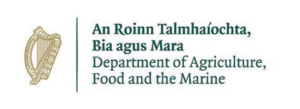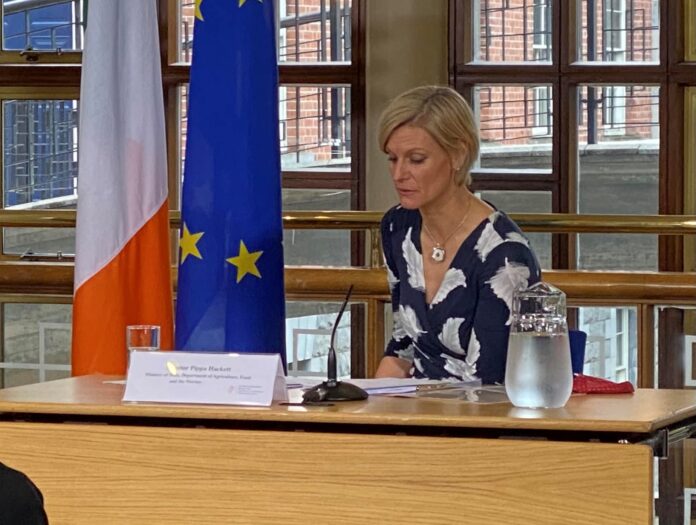The Minister of State with responsibility for Land Use and Biodiversity, Senator Pippa Hackett today welcomed the 2021 Budget, saying it includes many important measures which will stimulate nature-friendly farming practices, and encourage and incentivise farmers to do what they can to enhance their land, while also producing high-quality food.
Minister Hackett stated, “Farmers know only too well that the future of food production, and the future of us all, depends on having a healthy environment in which to operate. Climate change and biodiversity loss have had a direct impact on farms, and their viability. However, I am happy that the schemes and allocations announced in this budget will stimulate nature-friendly farming practices, which will help farmers protect their land while also producing from it.’’
Addressing some specific measures, she said, “It is really important that our recovery from Covid-19 is a Green recovery, so I am delighted that the ring-fenced €23m from the Carbon Tax, along with additional funding from the EU, as announced by Minister McConalogue, will be allocated to a range of new pilot Environmental measures. In addition, I have secured very welcome funding for Forestry, Horticulture, Organics, Habitat Creation and Peatlands Rewetting, and as well as for a number of nature-based initiatives which I believe will contribute significantly to more environmentally friendly practices.’’
The Minister announced strong support for Forestry with the allocation of over €100m for 2021. She stated, “We must get forestry moving again. But we must also ensure it works for all. I really want 2021 to be a year when we all ‘Think Tree’ and I look forward to using the strong budget allocation for Forestry to deliver a range of schemes and incentives which will deliver a diversity of planting, climate action, and biodiversity as well as supporting a healthy industry.’’
The Minister also announced sizeable increases in allocations for the Horticulture and Organic sectors. She said, “There’s an additional 50% going to Horticulture. Horticulture has huge potential and this increase from €6m to €9m will support current producers to develop further, and also attract new operators into the sector. I want to see increased import substitution, as well as the development of key market opportunities. Our favourable plant health status also offers opportunities to access international markets. The 33% increase in the budget for the Organic Farming Scheme, to nearly €16m, is also very welcome and addresses the growing demand from both farmers and consumers for this type of production. Those already in the scheme can continue, while I expect the funding to support between 400 and 500 more farmers to go organic. It also marks a significant start to the Government’s commitment to increase the land area farmed organically.’’
The Minister also highlighted the extra funding she is allocating to the development of ‘Nature-Based Biodiversity Initiatives’. She added, ‘‘I want to build on the locally-led European Innovation Partnership initiatives with community versions. The EIP programme has been incredibly successful here, and many innovative approaches to dealing with environmental issues on farms have been developed, so I am pleased to announce €1.25m for such locally-led nature-based initiatives.’’
Referring finally to some of the allocations which will go to research and training schemes, the Minister stated, “If we are going to make real progress, both farmers and policy makers will need to have a full understanding of what we have to work with, and what’s possible. That’s why I believe the €10m funding for a national soil sampling programme, the €5m for the farm biodiversity study, and the €14m for biodiversity and health and safety training are so important. In addition, further valuable information will be gleaned from a €250,000 allocation for a National Land Use Review and a €100,000 feasibility study on the wool market. All of these are the Programme for Government commitments.”





